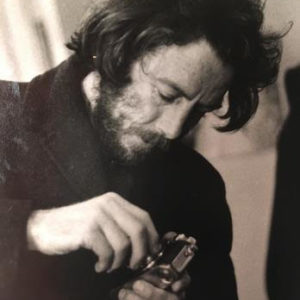Bastion Point Day 507
The Bastion Point occupation was one of the most important protests in the struggle for Māori land rights in New Zealand. The protest began in 1977 when the government proposed to subdivide Māori land in the Bastion Point region of Auckland, New Zealand’s largest city. The Ngāti Whātua tribe resisted these plans and occupied the site for 506 days. This film concentrates on day 507, when the protesters were forcibly evicted by a force of 800 military and police. No other film crew was permitted in the occupied area.
Bastion Point – Day 507 courtesy of the Merata Mita Estate, Leon Narbey, Gerd Pohlmann, Ngāti Whātua Ōrākei and the Hawke whanau From material preserved and made available by Ngā Taonga Sound & Vision
10/5 13:00
Directors
Leon Narbey
Leon Narbey is one of New Zealand’s most prolific and lauded cinematographers. His talents have contributed to roughly 20 features, including Whale Rider, Desperate Remedies, The Price of Milk and No.2. Narbey’s work as a director includes The Footstep Man and Illustrious Energy, an acclaimed drama about Chinese migrants gold mining in New Zealand.
Gerd Pohlmann
Gerd Pohlmann studied film at the DFFB Berlin. It’s where he met New Zealander Chris Strewe. Together they went to NZ for Strewe’s MA-Thesis film: Waitangi – The Story of a Treaty and its Inheritors. This film also features the start of the Bastion Point occupation. Pohlmann returned to NZ and in partnership with Merata Mita made some of the more seminal documentaries of the time: The Bridge, The Hammer & The Anvil. He is presently completing a documentary on New Zealand humanist and socialist politician Jim Anderton, with interviews he captured before Jim’s death in 2018.
Merata Mita
A pioneer of indigenous film and advocate for Māori creative control, director Merata Mita (1942 — 2010) chronicled landmark moments of protest and division in Aotearoa / New Zealand. Her work includes Patu!, a landmark documentary on New Zealand’s anti-apartheid movement, and Mauri (1988), the only feature film to be soley directed by a Māori woman. Her life story was recently portrayed in the documentary Merata: How Mum Decolonised the Screen which appeared at the Sundance and Berlin film festivals.



